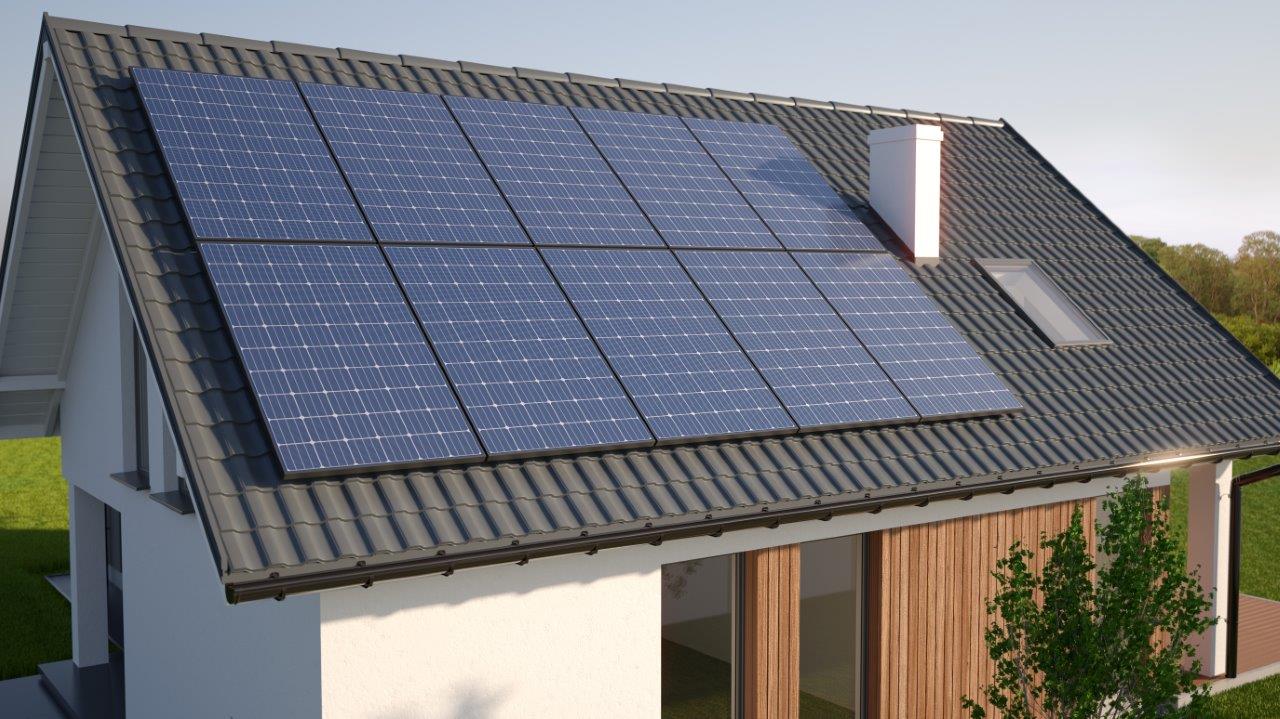The Ultimate Guide to Choosing the Best Solar Panels
Picking the optimal solar panels is a multifaceted choice that goes past plain aesthetic appeals or cost. It entails a cautious assessment of numerous types, including monocrystalline, polycrystalline, and thin-film choices, each offering unique benefits and disadvantages. Comprehending effectiveness ratings, expenses, and installation requirements is important for making an educated choice that aligns with your energy demands and spending plan. As the landscape of solar technology continues to develop, the implications of your choice can have long-term effects-- both financially and environmentally. What aspects should you prioritize to guarantee ideal efficiency and sustainability?
Recognizing Solar Panel Kind

Monocrystalline panels are created from a solitary crystal structure, supplying high performance and space-saving benefits. In contrast, polycrystalline panels make up numerous crystal structures, leading to a somewhat lower efficiency rate.
Thin-film photovoltaic panels are made from a variety of products, including cadmium telluride and amorphous silicon. They are light-weight and versatile, permitting distinct applications, such as combination into structure products. Although they often tend to have reduced performance prices contrasted to crystalline panels, their installment expenses and convenience can make them an eye-catching choice for particular tasks.
Understanding these types will empower you to make informed decisions based on your power demands and budget plan factors to consider.
Evaluating Effectiveness Ratings
Evaluating performance scores is crucial for choosing solar panels that align with your power objectives. The performance of a solar panel suggests the percent of sunlight exchanged useful electrical energy. Greater efficiency rankings mean that panels can generate more power in a provided area, making them specifically beneficial for setups with minimal room.
Standard photovoltaic panel effectiveness range from 15% to over 22%. When contrasting choices, it is crucial to think about the sort of solar innovation utilized, as monocrystalline panels normally provide higher efficiency than polycrystalline panels. Effectiveness is not the single requirement; aspects such as installment orientation, shading, and local environment can significantly affect general efficiency.
In addition, recognizing the effectiveness score's ramifications for energy manufacturing gradually is essential. Higher effectiveness panels might provide much better rois, especially in areas with high electrical energy costs or restricted setup area. It's advisable to look for panels with a solid performance guarantee, as this can supply extra assurance of their durability and performance. By thoroughly examining effectiveness scores, you can make an informed choice that maximizes your solar power capacity and meets your particular power demands.
Comparing Expenses and Service Warranties
Expense and guarantee factors to consider are important elements in the solar panel choice my blog process. When reviewing photovoltaic panels, the in advance price is a primary issue. Costs can vary substantially based upon the brand, modern technology, and performance scores of the panels. High-efficiency panels might have a higher preliminary investment but can bring about better long-term savings with increased power production. It is critical to examine the total worth as opposed to just the sticker cost.
Guarantees are equally vital, as they give understanding right into the maker's self-confidence in their item. Most credible solar useful source panels come with two types of warranties: efficiency and item. Efficiency warranties normally guarantee a specific outcome level for 25 years, ensuring that the panels will certainly keep their effectiveness with time. Item service warranties, on the various other hand, cover problems and handiwork, usually long lasting in between 10 to 25 years.
When contrasting costs and warranties, take into consideration the long-lasting ramifications of both. A lower-priced panel with a short warranty may finish up being more expensive if performance declines or fixings are required earlier than anticipated. It's crucial to balance first expenses with the safety and security provided by durable guarantee choices.
Installment Factors To Consider

Following, consider the alignment and tilt of the solar panels. Ideally, panels ought to be positioned to maximize sun direct exposure throughout the day. South-facing setups normally generate the greatest energy manufacturing, yet eastern and west orientations can additionally work relying on your power needs.
Furthermore, neighborhood structure codes and policies need to be examined before setup. Allowing needs can differ substantially by location, and conformity is vital here to stay clear of potential fines or obligatory removals.
Last but not least, hiring a qualified expert for installation is crucial (Solar Panels). Experienced installers will make certain that the system is appropriately positioned, linked, and certified with all security criteria. This choice can eventually improve the long life and performance of your solar energy system, making it a worthwhile financial investment for your renewable resource demands
Upkeep and Long Life
Appropriate maintenance is necessary for making certain the longevity and ideal performance of photovoltaic panels. Routine assessments and cleansing are critical elements of this maintenance regimen. Dirt, particles, and snow accumulation can substantially impede power production, so it is suggested to clean up the panels regularly, ideally every six months or after considerable climate occasions.
In addition, keeping an eye on the system's efficiency with a solar surveillance app or device allows home owners to recognize any decreases in energy outcome that might show problems calling for interest. It's also prudent to look for any signs of wear or damage, such as fractures in the panels or deterioration in the electrical wiring. Spending in top notch solar panels frequently comes with longer warranties, typically ranging from 25 to 30 years, which can serve as a sign of their anticipated longevity.
Regular professional evaluations can even more enhance the life-span of your solar power system, making sure that any possible troubles are resolved promptly (Solar Panels). By adhering to these upkeep methods, property owners can optimize not just the effectiveness of their photovoltaic panels however likewise their roi throughout the years, contributing to a sustainable energy future
Conclusion
In conclusion, choosing the optimal solar panels requires a thorough analysis of numerous aspects, including panel types, effectiveness rankings, expenses, and service warranties. Setup considerations and ongoing upkeep play critical functions in making certain the durability and performance of the solar energy system.